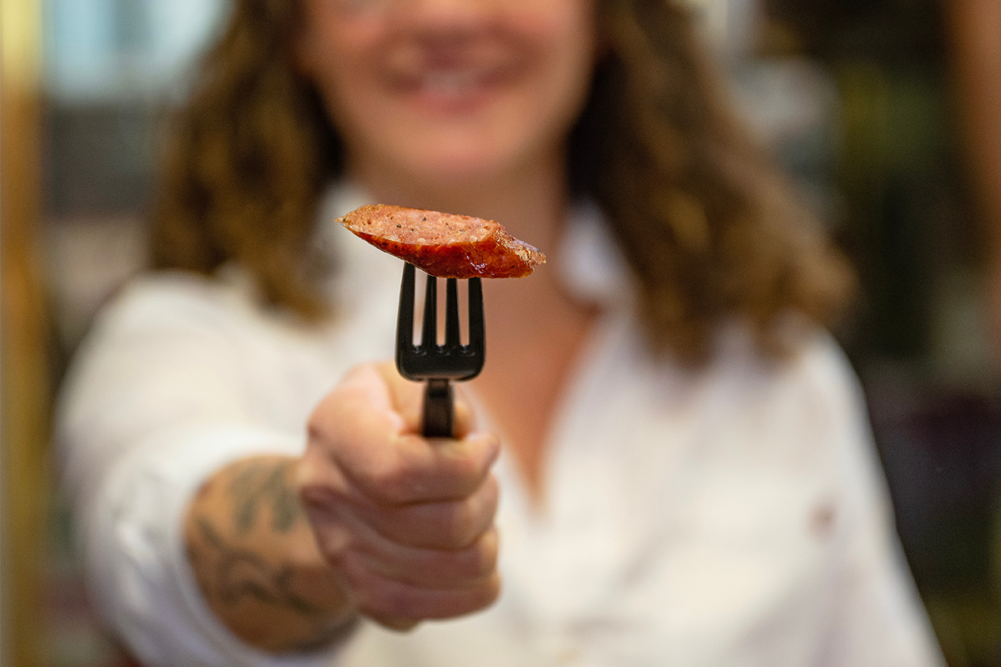PULLMAN, WASH. — The US Food and Drug Administration authorized gene-edited pigs from Washington State University to enter the food chain in the form of German-style sausages.
Jon Oatley, a molecular biosciences professor at WSU’s College of Veterinary Medicine, led the research project to demonstrate that food made from gene-edited animals can be safe for consumption and that it is possible for an academic institution to earn FDA authorization.
“It’s important for a university to set the precedent by working with federal regulators to get these animals introduced into the food supply,” Oatley said. “If we don’t go through that process, all of the research we’re doing is for naught because it will never make it out into the public.”
The pigs were gene-edited through a tool known as CRISPR to produce pigs with more desirable traits for food production. CRISPR allows changes in DNA to occur much quicker than they would through nature or selective breeding.
After the pigs were processed at the WSU Meat Lab, the US Department of Agriculture inspected the meat, which was made into sausage with the assistance of meat scientist Blake Foraker.
The sausages will be used in catering services to raise travel funds for student members of the WSU Meat Judging team.
While the gene-edited pigs have been approved by the FDA, the pigs’ offspring have yet to be reviewed by the agency.
The project has taken Oatley and his team two years to complete and cost around $200,000.


